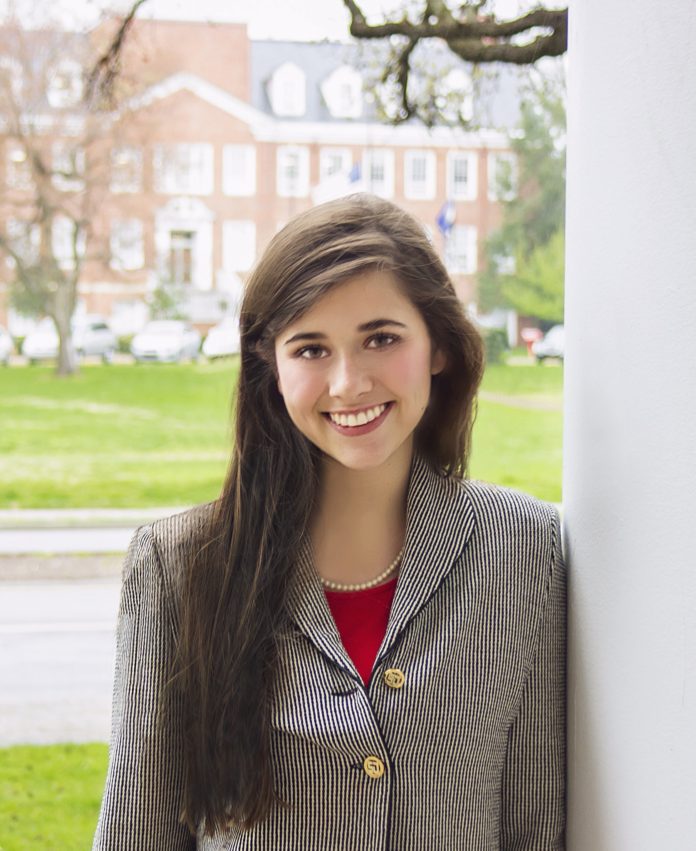In the season of planning for the 2017-2018 school year, students should consider a course called Further Engagements (FE). It was the most unconventional and wonderful course I’ve taken thus far in my academic career.
For midterms and finals, we had conversations. There were no papers, only reading assignments. It was challenging, but not stressful, and it was consistently the highlight of my weeks. Books changed, on average, every 2 weeks; so did professors. For someone who holds getting to know professors as a highlight and hallmark of a Transylvanian education, the course is a steal—7 for the price of only 1 credit.
“What makes Further Engagements distinctive? It both mainlines and models lifelong learning for the liberally educated.FE mainlines lifelong learning: it urges students and faculty to feel free to use all of their experience and knowledge to address a provocative text—right now, together—without the constraint of a quiz or a paper due.” — Jack Furlong.
With courses as small and discussion-oriented as they are at Transy, classmates can make or break a good class. The quality of participating students is one element that makes Further Engagements exceptional. Students interested in the class had to send an email to a professor explaining why they were interested in taking the course and what they thought it would contribute to their liberal arts education, along with the name of a professor who could attest to the value of their participation in class. This is not to say that Transy students aren’t incredibly hard-working in general, but this assured that everyone in the course was really there for the right reasons, and was conscious of the fact that they would be expected to bring something to the table.
The students, and their relationship with the professor as required by the setup of the course completely changes the dynamics of discussion, for the better. Professors, according to the tradition of the course, chose to teach (or rather, assign readings and guide discussions for) books outside of their field of study. This may sound illogical or inefficient, but in the liberal arts, where interdisciplinary ideas overlap and curiosity and new ways of thinking abound, it’s a wonderful thing. This completely changed the dynamic of the classroom, because it put the professor at (almost) the same level of power and understanding as the students. Students were enabled and encouraged to speak more frequently, and to take the discussion where they wished, everyone was in collaboration to move the class forward. The multi-disciplinary book/professor combos, along with the enthusiasm and diverse backgrounds of other students in the class, made for some of the most absolutely brilliant group discussions of my college career.
The books chosen, and the actual material of the course also had a positive impact on the class. The chosen books were classics. We read The Feminine Mystique, Origin of Species, Peer Gynt, Frankenstein, R.U.R., The Tibetan Book of the Dead, and Plato´s Gorgias. Many of these books are classics in the foundational sense; they were and are texts that either caused or reflected some of the most important aspects of our current society. To give an example— Friedan´s Feminine Mystique arguably helped establish a foundation for the feminism that followed from the 60’s, and which is still influential today. I loved the sense of accomplishment and well-roundedness this gave me. Moreover, my experience with these books was different and arguably better than it would have been if I’d experienced them through the lenses of their respective fields. I may not have developed a perfect scientific understanding of Charles Darwin’s original text of The Origin of Species, but through a multi-disciplinary, discussion-based perspective, I grappled with theological and social implications of the text and came to insights regarding how Darwin laid the foundation for a new worldview (an astoundingly hopeful and beautiful one, by the way). I was able to take away something you just don’t get when you learn about his contributions scientifically or superficially, and I feel like I see the world a little more clearly after reading something that changed the course of scientific history.
“This is the class that allows us to sit down, set aside our mundane works, and think about the fundamental questions and ideals like justice and virtue that shape human life.” —Sibei Lin, ’18
The course became philosophical in many ways, but without limiting itself to just the field of philosophy—the structure of the course simply requires examining the texts at the highest level.
All the academic and intellectual prowess of the course I’ve described above was complemented by a casual and incredibly personal atmosphere. We had class in different locations. We read the Tibetan Book of the Dead aloud to each other under the trees, and discussed philosophy over dinner in the President’s room with President Carey. We gathered in the lobby in BSC with all the stuffed birds and icky things in jars to discuss the Origin of Species with Dr. Slepyan, and made tea to accompany cookies and Chinese food in the chemistry lab with Dr. Csuhai for our reading and occasional listening to and acting out of the play Peer Gynt. I’m convinced the casual nature of our gatherings contributed to the quality of our discussions, as well as helping us form a more personal relationship with professors and peers. Something about being freshly stuffed with egg rolls brings out the best and brightest in people.
Further Engagements should be embraced by students and faculty and continued in future years. University support is important to bring in professors and to promote the course to students. Look for it on Tnet and Tnotes for the 2017-2018 school year.



